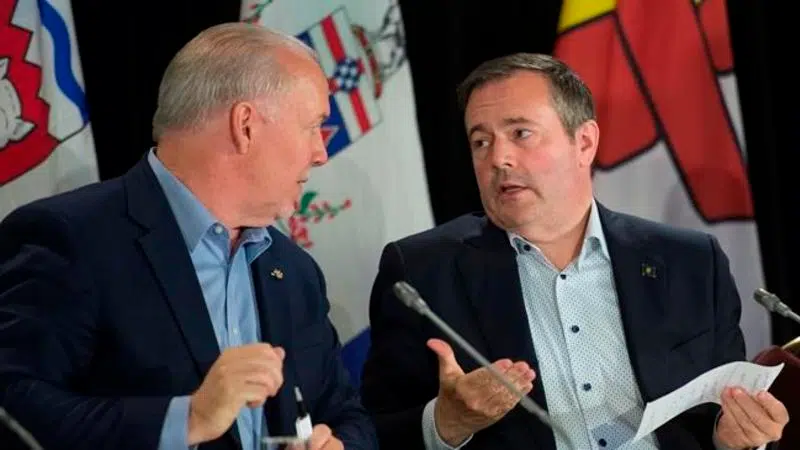
‘Frustration and alienation:’ Jason Kenney tells premiers national unity threatened
SASKATOON — Alberta Premier Jason Kenney says he still believes national unity is under threat despite two days of collaborative discussions with the country’s leaders.
Kenney said his province contributes billions of dollars to Canada’s economy but is blocked by some jurisdictions from developing its resources.
“The level of frustration and alienation that exists in Alberta right now towards Ottawa and the federation is, I believe, at its highest level, certainly in our country’s modern history,” Kenney said Thursday at the end of the annual premiers’ meeting in Saskatoon.
Kenney said he doesn’t think Albertans really want to separate — they just want fairness.


